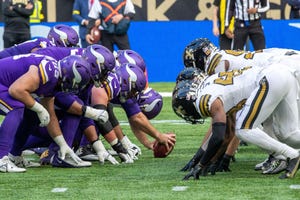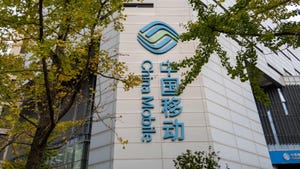Eurobites: Deutsche Telekom pilots 5G-fueled remote driving with MIRA
Also in today's EMEA regional roundup: Openreach sings praises of the subtended headend; BT unveils its digital street units; TikTok makes changes to placate EU.

Also in today's EMEA regional roundup: Openreach sings praises of the subtended headend; BT unveils its digital street units; TikTok makes changes to placate EU.
Deutsche Telekom is collaborating with MIRA, a German company specializing in automated driving technology, on a pilot project investigating the potential of "teleoperated" or remote driving. 5G connectivity will be the conduit for MIRA technology that will be used to remotely control a shuttle service between various Deutsche Telekom locations in Bonn. The legal framework for such applications of teleoperation is still in the process of being defined at a national and European level.
Openreach, the semi-autonomous network access arm of UK operator BT, claims that it saved £10 million (US$12.7 million) on fiber rollout costs last year thanks to the use of subtended headend (SHE) technology, which allows new fiber cables to be built out from specially adapted roadside cabinets. The trick is the installation of ultrafast broadband optical signal boosting equipment – normally housed in a main exchange building – at the roadside cabinet. Openreach says that its engineers have now deployed around 100 individual SHEs across the UK, connecting up around 160,000 homes and businesses that would otherwise have been beyond commercial reach. The company cites as an example the remote Welsh Amman valley, where the use of seven SHEs has removed the need for 20km of fiber "spine," allowing the project to be completed two years early, with savings of almost £1 million ($1.3 million).
BT, meanwhile, has been unveiling the first batch of its digital street units which offer free "ultrafast" WiFi, free calls, wayfinding information and rapid device charging to, in this case, inhabitants of and visitors to the northern English city of Newcastle. As part of the initiative, BT will also be giving away £7.5 million ($9.5 million) worth of advertising on the units to small, local businesses. More Street Hub 2.0 units (as BT calls them) will be rolled out across other UK cities in the coming months.
TikTok, the Chinese-owned nonsense mill, has announced an assortment of new features that its owners hope will allow it to better comply with the forthcoming EU Digital Services Act. As Reuters reports, TikTok says it has made it easier for European users to report illegal content, allowed users to turn off personalized recommendations for videos and removed advertising targeted at those aged 17 or under.
Vodafone UK has boosted its 4G coverage in Scotland's Dumfries and Galloway region thanks to the operator's decision to share masts in Ae and Loch Head. The move forms part of the Shared Rural Network (SRN) program, a £1 billion ($1.3 billion) mast-sharing initiative being pursued by the UK government and the UK's four mobile network operators. (See SRN promises 4G coverage jump in rural UK.)
Analysis from EE, the BT-owned mobile operator and broadband provider, shows that the Women's (soccer) World Cup matches involving England's so-called "lionesses" are having a noticeable impact on BT's network. England's 6-1 pummeling of China on August 1 saw an 8.4% uptick in fixed data usage on the network compared to an average day, while the match drove 1.12% of overall demand on the network during the two-hour time period.
— Paul Rainford, Assistant Editor, Europe, Light Reading
Read more about:
EuropeAbout the Author(s)
You May Also Like












